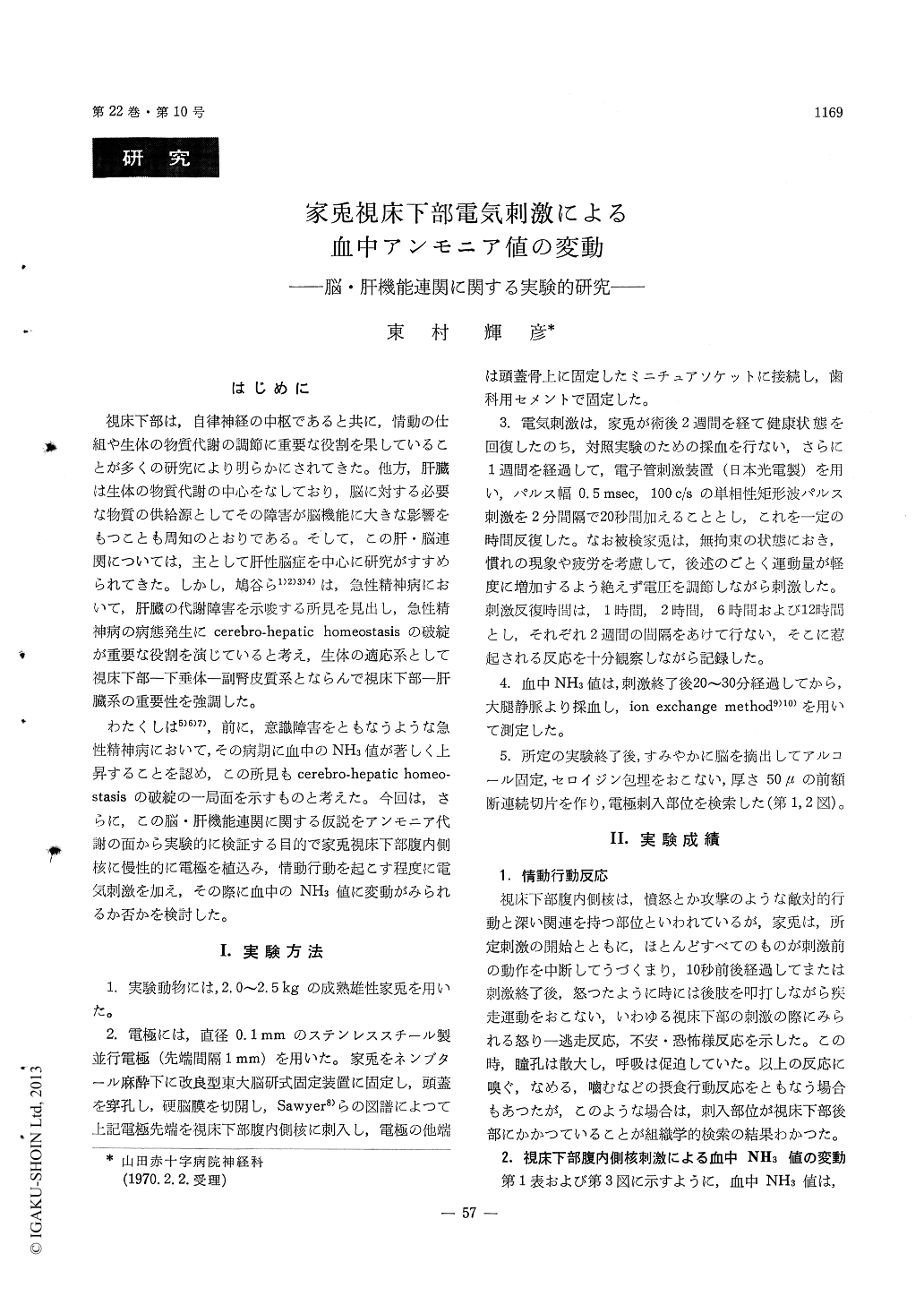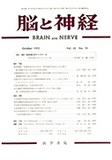Japanese
English
- 有料閲覧
- Abstract 文献概要
- 1ページ目 Look Inside
はじめに
視床下部は,自律神経の中枢であると共に,情動の仕組や生体の物質代謝の調節に重要な役割を果していることが多くの研究により明らかにされてきた。他方,肝臓は生体の物質代謝の中心をなしており,脳に対する必要な物質の供給源としてその障害が脳機能に大きな影響をもつことも周知のとおりである。そして,この肝・脳連関については,主として肝性脳症を中心に研究がすすめられてきた。しかし,鳩谷ら1)2)3)4)は,急性精神病において,肝臓の代謝障害を示唆する所見を見出し,急性精神病の病態発生にcerebro-hepatic homeostasisの破綻が重要な役割を演じていると考え,生体の適応系として視床下部—下垂体—副腎皮質系とならんで視床下部—肝臓系の重要性を強調した。
わたくしは5)6)7),前に,意識障害をともなうような急性精神病において,その病期に血中のNH3値が著しく上昇することを認め,この所見もcerebro-hepatic homeo—stasisの破綻の一局面を示すものと考えた。今回は,さらに,この脳・肝機能連関に関する仮説をアンモニア代謝の面から実験的に検証する目的で家兎視床下部腹内側核に慢性的に電極を植込み,情動行動を起こす程度に電気刺激を加え,その際に血中のNH3値に変動がみられるか否かを検討した。
The author investigated blood ammonia levels in rabbits to see what changes might be induced by artifical disturbances in brain function brought by electrical stimulation of the hypothalamus, a region considered to be intimately related to the emotions. Immediately after initial stimulation of the ventro-medial nucleus of the hypothalamic area, the animals stopped moving and squatted for some 10 sec., not in a stupor but very alertly retracting their ears. Then the animals began running or circling move-ment.
These mortor reactions were stimulus- bound, and it appeared that they were experession of fear or rage. These same animals showed polypnea and were excited even in the interstimulus intervals.
Stimulation of the ventro-medial nucleus of the hypothalamus for a period of two hours resulted blood ammonia levels 1. 5 to 2. 0 times as high as those of the controls, but after a 6-hour stimulation period these levels returned to equal those of the controls, and after 12 hour-stimulation period of the same nucleus, they tended i o become less.
The results of the present experiment suggest that the hypothalamus may have some influence, neural and/or humoral, on ammonia metabolism in the liver, and the author was convinced that these date are evidence in support of the thesis of cerebro-hepatic interrelationship, although further studies must be carried out to elucidate its precise func-tional mechanisms.

Copyright © 1970, Igaku-Shoin Ltd. All rights reserved.


